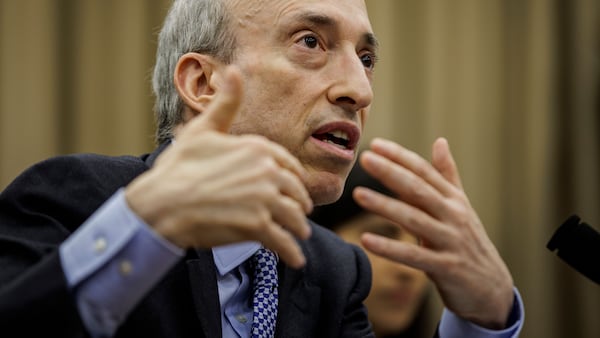- Australian regulators are pursuing a lawsuit against wallet provider Finder.
- The case is testing legal definitions around crypto.
- Lobbyists are now pleading to avoid regulation by enforcement akin to what's happening in the US.
A legal fight in Australia is pulling back the curtain on how crypto players down under are wrestling with the same challenges as their counterparts in the US.
In the latest action, the Australian Securities and Investments Commission on Wednesday said it would press ahead with its litigation against Finder Wallet.
The decision, while not surprising, has left crypto industry supporters peeved because the case turns on a dispute over legal definitions rather than any alleged wrongdoing.
Slew of lawsuits
The lawsuit has also evoked comparisons with the US, where the Securities and Exchange Commission’s hard-charging chair, Gary Gensler, has brought a slew of lawsuits against crypto players — including major exchanges Coinbase and Binance.
Continuous litigation is the wrong approach to nurture Australia’s crypto industry, lobbyists told DL News.
“Blockchain Australia has advocated for many years for fit-for-purpose regulation, and we have seen the damage in the US that regulation-by-enforcement approach causes,” said Michael Bacina, the chair of industry group Blockchain Australia and a partner at law firm Piper Alderman.
Finder told DL News it was aware of the appeal, but did not provide further comment.
‘Clear guidance with meaningful early engagement by regulators seems the better pathway.’
— Michael Bacina, Blockchain Australia
Finder Wallet was a registered crypto exchange owned by Finder.com.au, a financial products comparison website co-founded by flamboyant Australian entrepreneur and Bitcoin investor Fred Schebesta.
The wallet app allowed users to trade crypto, including Bitcoin, Ethereum, and Shiba Inu.
Finder shut down the wallet programme in November 2022, a year after it launched, saying higher interest rates rendered its promise of 4% return unattractive to users.
A month later, it was sued by the the Australian Securities and Investments Commission.
ASIC alleged that Finder Wallet carried on a financial services business without an Australian Financial Services Licence, and that via its Earn product, Finder Wallet was offering a “debenture” without a disclosure document or target market declaration.
A debenture is a long-term security that pays a fixed level of interest and are issued by companies and secured against assets.
In March, a federal judge sided with Finder.
Justice Brigitte Markovic ruled that “ASIC has not established that the Finder Earn product is a debenture” within the meaning of the law.
But on Wednesday, ASIC appealed the decision, saying the judge had erred in her decision.
It’s all about definitions
The Wallet programme lasted just a year, and paid out 500,000 total of its own stablecoin — pegged to the price of the Australian dollar — to users.
Nevertheless, the case was interesting to lawyers and lobbyists in Australia, who saw it as a “landmark” test of the concept of debenture with regard to cryptocurrencies.
The case has also thrown into relief how the court battles between crypto services and governments globally come down to legal wrangling over complex, technical definitions.
In the US, for example, much of this argument centres on definitions of “Howey” — a precedent that is one of the tools the SEC uses to determine if an asset is an investment contract and therefore under its jurisdiction.
The industry, on the other hand, says it needs tailored, easy-to-understand laws issued by Congress, and Gensler’s suits amount to “regulation by enforcement.”
That’s true for Australia also, Bacina said.
“Clear guidance with meaningful early engagement by regulators in any innovative space seems the better pathway to protecting consumers, innovation, and jobs in Australia,” he said.
Australia moving ahead
Despite the paralells, Australia is in a very different position to the US.
While a deadlocked Congress has failed to pass any tailored crypto regulation and left the SEC to step into the vacuum, Australia’s Treasury proposed bespoke regulation of crypto exchanges in October.
The Treasury’s proposed rules would require exchanges to obtain an ASIC licence.
“The Australian Treasury has recently consulted on licensing legislation in Australia,” Bacina said.
“The sooner Parliament considers draft legislation, the sooner clarity will come to industry and protections for consumers.”
Blockchain Australia has provided policy recommendations to the Treasury on these licensing requirements.
Reach out to the authors at joanna@dlnews.com, or eric@dlnews.com.




